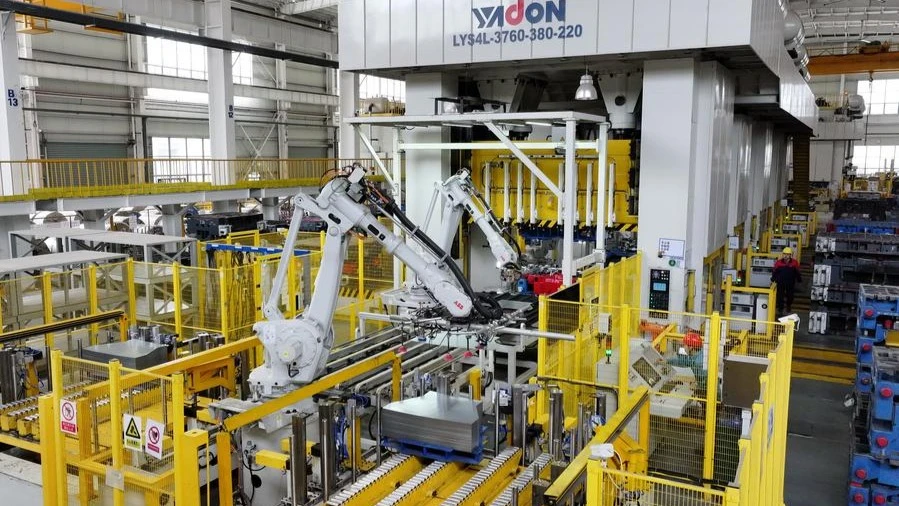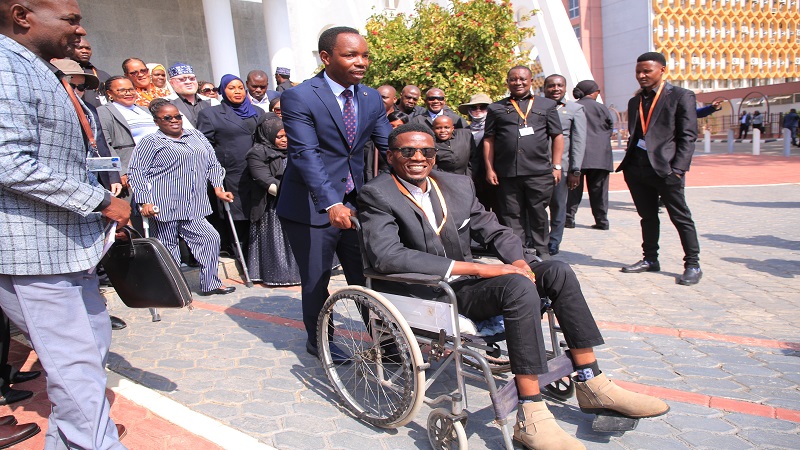Why it is important for an individual to build the ability to handle life pressures

HUMAN beings live in a society full of challenges and problems. Individuals struggle to succeed in life through legal or sometimes illegal means. Life, in many ways, is a constant battle.
To navigate these challenges and achieve success, individuals need the right knowledge and skills to reach their goals. While schools teach a great deal, not everything is learned in the classroom. Much is acquired from parents, religious leaders, and peers. The experiences of others whether they succeeded or failed, are valuable resources in addressing life’s difficulties. We also learn from the mistakes of others and are often reminded not to repeat them.
Life is not possible without interdependence, as no one is fully self-sufficient. At times, individuals need support in various forms—advice, companionship, or financial assistance. It is said that no act of help is ever too small.
However, this system of mutual support can also be a source of stress when expectations are unmet. People get tired of waiting, making it important to settle obligations promptly to prevent unnecessary tension. Decisions to help others can sometimes lead to conflict, disrupting peace within the community.
Cooperation is crucial for social development, but dishonesty undermines it and hinders societal progress. Some fail to realize that helping others is not a sign of wealth but of valuing humanity. Unlike animals, humans possess the ability to reason and act for the betterment of society.
It is unfortunate when those capable of helping others choose not to, due to lack of integrity. It is wise to honour those who honor us, nurturing a culture of mutual respect.
In the course of interactions and the search for development human beings get into different types of relations such as in business, social organisations like religious activities, marriage among others. These relations make people share some resources or assist one another.
When an individual is in a group they need to prepare for what may come forth. Every individual have got their perspectives, feelings and thoughts which make it possible for some situations which can cause challenges. Due to this reality it becomes important for someone to develop ability to accommodate stress.
Individuals must manage their relationships in ways that do not harm their well-being. Striving for balance involves establishing guiding principles for decision-making, reducing the chances of error.
Life requires precautions, especially since the people we interact with may have different intentions. Some philosophers argue that people are often unaware of others’ true motives. If no one understands our needs, they may fail to support us appropriately.
There are several reasons why an individual should develop the ability to accommodate stress, as discussed below:
Failure to reach goals
Every rational person sets goals to achieve within a specific timeframe. When these goals are not met, disappointment sets in. It's important to accept that not all goals will be achieved as planned—some will be delayed, and others may never materialize.
Failure is not the end; rather, it can be a stepping stone to future success if viewed positively. One may try again or adopt a new approach. Challenges can be transformed into opportunities with the right mindset.
Disappointments
Those we trust can sometimes act in ways that contradict our expectations, causing discomfort. If not addressed well, such situations can lead to stress. Human beings naturally expect good outcomes, so negative experiences are often deeply troubling.
Only by acknowledging that life can take unexpected turns can individuals cope and move forward. Though the past cannot be changed, the future can be shaped with careful planning. Disappointments should be embraced as learning experiences.
Deaths, illness and loss
Unexpected events—such as the death of a loved one, illness, or the loss of valuable possessions—can cause deep sorrow and emotional stress. To live soundly, one must accept that misfortunes can occur at any time. Building emotional resilience helps in navigating such painful realities.
Dependence syndrome
Constantly relying on others for support can also cause stress, particularly when individuals are asked to give more than they can manage. Everyone has a limit to what they can offer. When demands exceed one’s capacity, it creates discomfort, possibly leading to emotional strain. Recognizing the dangers of over-dependence enables individuals to plan better and avoid stress-inducing situations.
Human beings are gifted with capabilities, but these are not limitless. Some tasks are within our ability, while others are beyond our control. It is wise to act according to one's capacity. Author Norman Vincent Peale, in The Power of Positive Thinking, advises not to carry the whole world on one’s shoulders.
This means that life’s burdens are not meant for one person alone. Many thinkers believe that one must first meet their own needs before helping others. Assisting others should not derail personal progress. Success begins with the awareness of what should and should not be done. It’s also important to learn to say “no” when necessary.
In conclusion, stress can be managed if proactive measures are taken. Building the ability to accommodate stress is not only vital for personal well-being but also for maintaining healthy relationships and contributing to the development of a peaceful, cooperative society.
The author is a teacher based in Moshi. He can be reached at lyimo.thomas@yahoo.com
Top Headlines
© 2025 IPPMEDIA.COM. ALL RIGHTS RESERVED

























